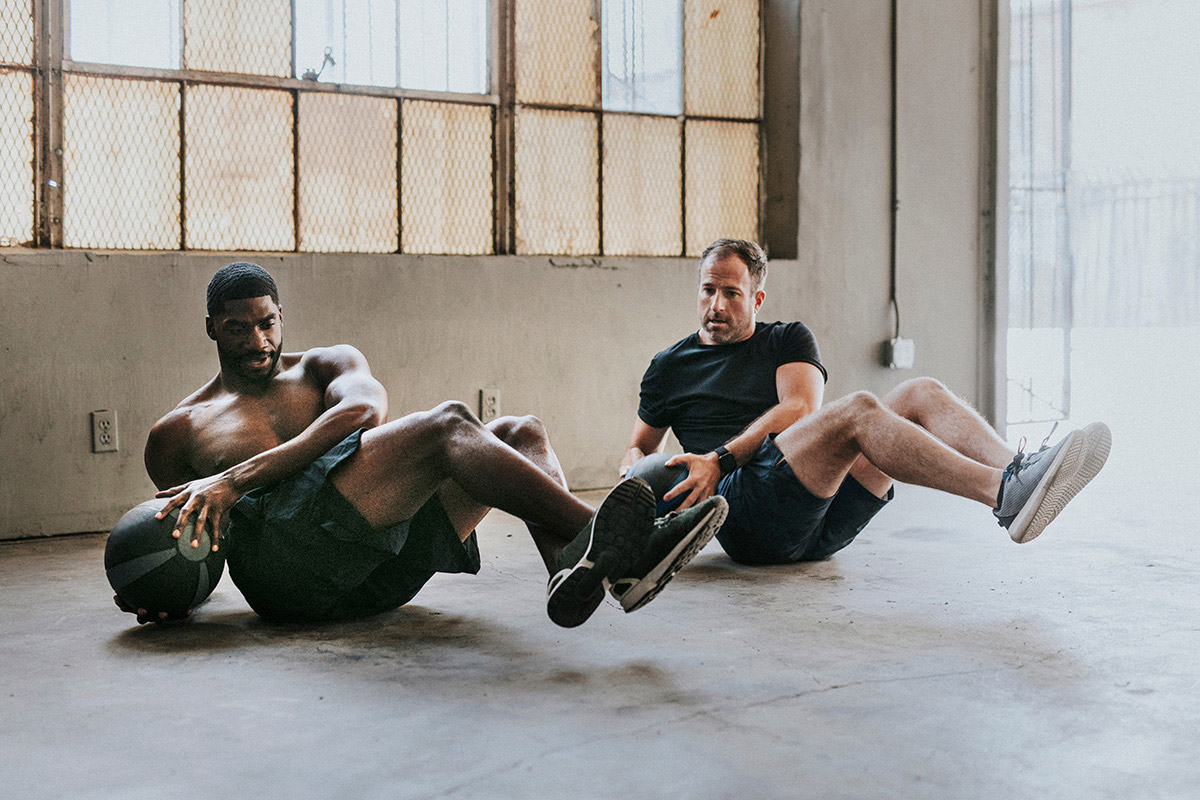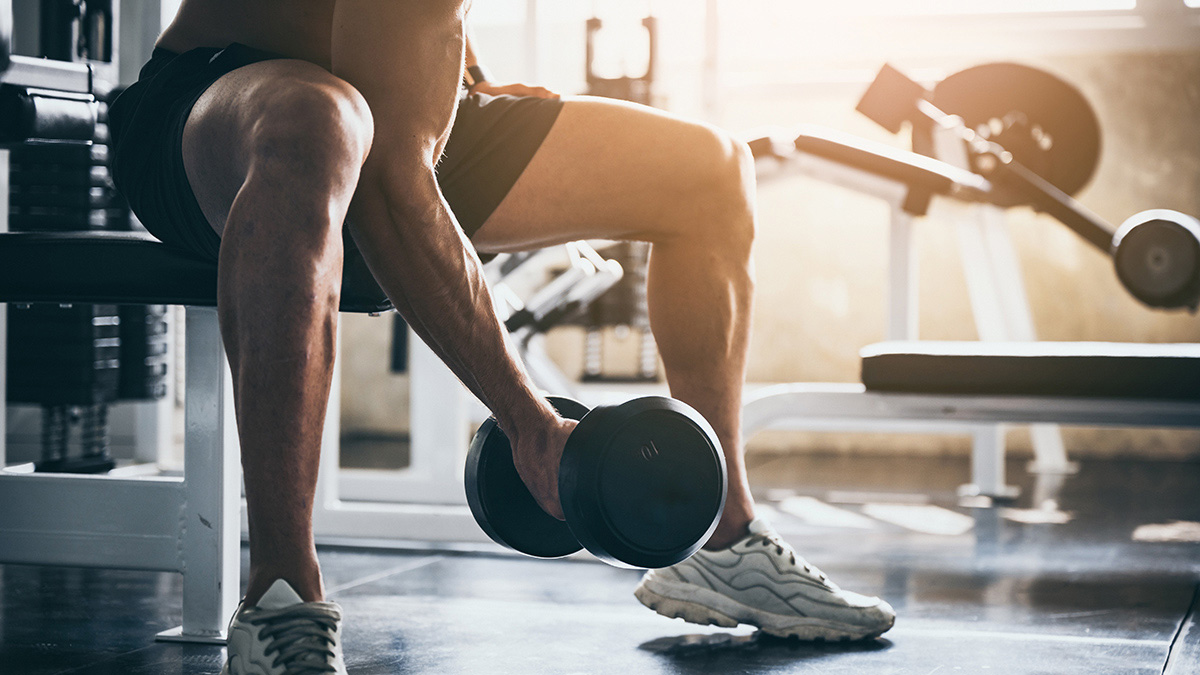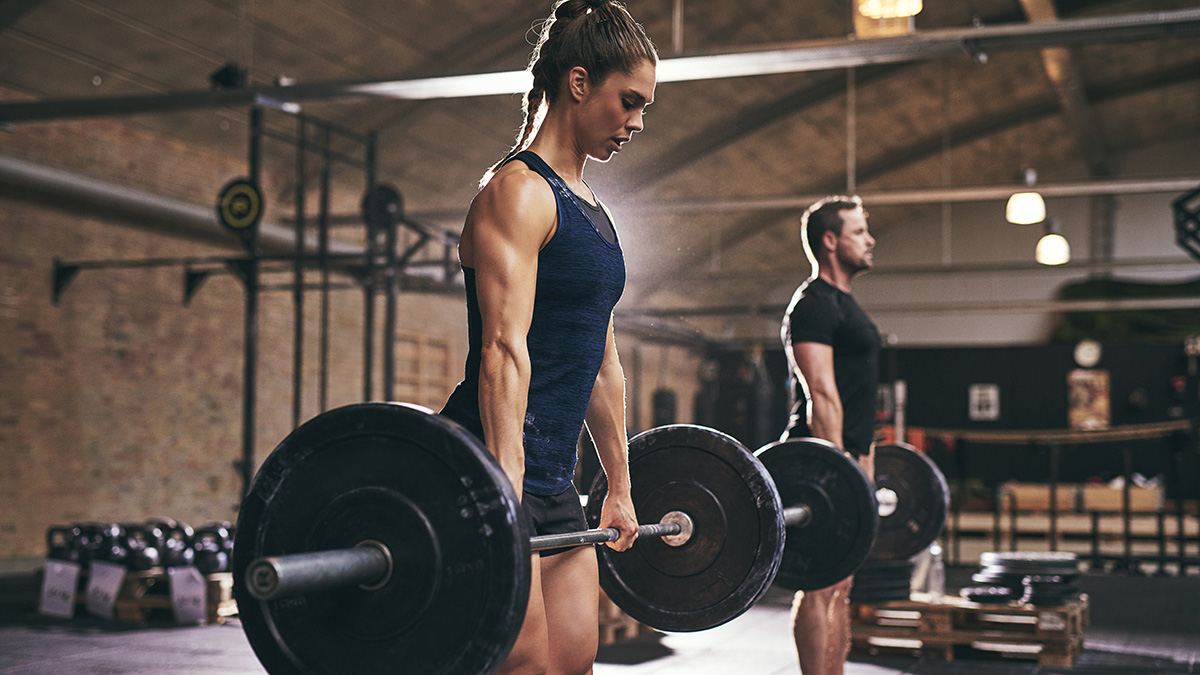Is It Better to Work Out in the Morning or Evening?

In the world of fitness, gym-goers are staunchly divided over the best time to exercise: Some swear by waking up at the crack of dawn, throwing on their trainers and getting into the weights room before the sun’s barely up. And then there are those night owls that prefer to hit the snooze button and get their training done after dark.
But what are the benefits of working out in the morning compared to the evening? Does the early bird really catch the worm or will you maximise your gains if you sleep in and get a sweat on later in the day? The answer, according to experts, is not entirely clear-cut.
Working out in the morning
If you’re an energetic gym lark that’s already ticked off your first set before 7am, there are some key benefits to working out earlier in the day. Notably, revving up your body first-thing can better aid with weight loss, if that happens to be one of your goals for the year.
“One of the biggest benefits to early exercise is that it kick-starts your metabolism, so you burn calories more efficiently during the rest of the day,” explains David Wiener, training and nutrition specialist at AI-based fitness and lifestyle coaching app Freeletics. “Some trainers advise working out first thing, before eating breakfast, which is what’s generally known as a fasted workout. Research shows that this type of training can increase the calorie-burning benefits,” he adds.
That said, having a good breakfast before exercise can give you more energy for better performance, so there are benefits to both camps. If you are going for a morning workout and you’re looking to pack on some brawn, Wiener recommends choosing low-intensity cardiovascular exercise, so your body doesn’t draw energy from your muscles, which could result in a loss of muscle mass.
“Studies show that people who train in the morning also tend to make healthier food choices for the rest of the day too,” Wiener reveals. It sets a positive intention, so you’re less likely to swerve the nutrient-packed veggies in your fridge and order a greasy takeaway instead.
Plus, there’s the added benefit of endorphins; the natural, feel-good hormones that give us a mood-boosting buzz after any exercise. Releasing a few endorphins in the morning can be useful if you have a busy day at work and need energy to knuckle down and focus.
Logistically, there are a couple of cons to training early though. “Many people forget to spend time warming up their body before they begin exercising, which can be stiff after getting out of bed,” warns Wiener. If you don’t give your muscles enough time to warm up, you risk causing yourself an injury, or at the very least, enduring some pretty painful DOMS.
It depends on your sleep schedule too. “If you know you’re waking up for an early morning workout, you need to ensure you have an early night so you don’t miss out on important rest and recovery,.” Wiener adds. “Some people just aren’t morning people, and a morning workout can be detrimental to their health.” This is especially true if you’re constantly falling short on 7 to 9 hours of quality kip per night.
Generally speaking though, it’s a bit easier to stay on track with a fitness routine in the morning, where social plans, work deadlines and the pub’s happy hour are less likely to encroach on your precious gym time.
Working out in the evening
Don’t discount the benefits of an evening workout, especially if you strength train. “An evening workout can be great for lifting weights, as it’s when your body’s glycogen stores are at their fullest,” Wiener says. As you exercise, your body breaks down glycogen into glucose for energy. Once those glycogen stores are depleted, your body runs out of fuel and you start to feel tired.
“Biologically speaking, this means you’ll have more power to excel in your workout and push your body to the fullest,” says Wiener. “In the evening, you also have higher levels of the muscle-building hormone testosterone, as well as a higher anaerobic capacity. In fact, according to research published in the journal Applied Physiology, Nutrition and Metabolism, anaerobic capacity is 7% higher in the evening compared to in the morning.” Plus, your body temperature also peaks in the evening, which is closely related to performance.
In short? Your body is in a better state to exert its full potential when the sun goes down. “On the whole, training at night is associated with a higher power output in both resistance and endurance sports,” confirms Wiener.
A word of warning though, training later in the evening, after 7 pm, can negatively affect sleep – and one bad night under the covers can throw off your whole training routine. Not forgetting too that sleep is super important for our immunity, our physical and mental health and for lowering our chronic disease risk.
As we mentioned earlier, you’re also way more likely to feel demotivated to train later in the day when the sofa, Netflix and a cold beer are calling your name.
Morning vs Evening: Which is best?
Our circadian rhythms fluctuate throughout the day, meaning our energy and alertness dip and rise too. What this tells us is that there’s no ‘one’ set rule for everyone, and the best time to workout is when your appetite for fitness is at its peak. Whether morning or evening, you’re naturally more likely to gravitate towards one or the other.
“If you prefer to work out in the evening then strength training is a great option,” says Wiener. “Morning workouts could be seen as more efficient though, as they are a lot easier to commit to, and once it’s finished, it’s done for the day.”
He continues: “If you’re looking to improve your cardiovascular fitness with something like running, the morning is likely the best time to exercise. After having 7 to 8 hours of sleep, you’ll have more energy to partake in intense cardio-related activities.”
Ultimately, the best time to exercise is the part of the day where you can commit to it for days, weeks and months. In the end, working out is good for you no matter what time you do it. So no matter if it’s first thing or late at night, the important thing is to pick a time and make it stick.




















